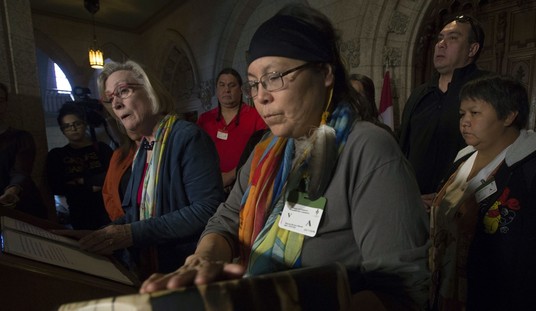While legislation that is seen as benefiting ridesharing services like Uber and Lyft has stalled in the California Senate, a new proposal has been offered that would wreck the foundation on which those “gig economy” companies were built.
Uber and Lyft made their businesses by using “independent contractors” as opposed to “employees.” Both have argued their workers are actually entrepreneurs, and as a result the companies they drive for should be exempt from being forced to pay healthcare insurance and the other perks that come with regular employment.
The argument has been made that Uber, Lyft, and other internet-based companies like Amazon are actually hiring “employees” but refusing to pay benefits by classifying them as “freelance” or “independent contractors.”
State Assemblywoman Lorena Gonzalez (D) introduced legislation March 9 that hurdles that debate by using the term “independent contractors” in a proposal to give those working in the “gig economy” the right to collective bargaining for what she sees as basic workplace rights.
Assembly Bill 1727, known as The California 1099 Self-Organizing Act, would allow independent contractors who perform their work through a hosting platform to negotiate as a group. They would also have the right to communicate with anyone boycotting or critiquing a hosting platform’s business practices as well as to report “any practices which an independent contractor reasonably believes violates local, state, or federal law and adversely affect either workers or clients.”
“Our laws must do right by the workers in this state,” Gonzalez said. “This bill ensures that the millions of Californians who aren’t treated as employees, including workers in the evolving gig economy, simply have the option to organize and collectively bargain for better pay and working conditions for themselves for the work that they perform.”
Can you imagine the glee on Teamster legend Jimmy Hoffa’s face at the opportunity this would present to union leaders who face a shrinking membership list? How about the fear it must strike in the hearts of the people like Uber CEO Travis Kalanick who said his business’ main opponent was “an as***hole named Taxi.”
Neither Uber nor Lyft responded to PJM’s request for comment.
However, the lobbying organization Internet Association, which represents the top drawer of web-based businesses like Uber, Lyft, and Amazon, did sound an alarm.
“For millions of Americans, the sharing economy is an important safety net that offers flexible earning opportunities. Individuals are now able, like never before, to work for themselves and earn money how, when, and where they want,” Internet Association president and CEO Michael Beckman said. “Independent contractors are prevalent in every industry, but this proposal unfairly targets the Internet sector in a way that could hurt the very people it purports to help.”
However, Assemblywoman Gonzalez said her polling shows Uber and Lyft drivers, and other gig economy workers, say by a 2-1 margin the industry is exploiting them because of a lack of regulation. More than 70 percent of the workers say they should receive more benefits.
But Uber is more than ready for battle with Gonzalez.
“They have hired a whole fleet of lobbyists,” Sen. Jim Beall (D) told Bloomberg. “They’re all over the place. You see them prowling around the capitol building.”
Not only is David Plouffe, who managed President Obama’s 2008 campaign, Uber’s chief advisor in all things political, but Bloomberg also reported in 2015 that Uber had spent nearly a million dollars from 2013-2015 on lobbyists in Sacramento. That’s more than Facebook and Apple combined.
Uber and Lyft have a history in California. The companies were formed within a couple of years of each other in San Francisco. More than 50 cities and states now allow the kind of ride-sharing services that Uber and Lyft pioneered.
But no matter how much influence Plouffe and the Uber team of lobbyists might have in California, Uber has a huge problem with one legislator: Democratic Sen. Ben Hueso.
He has blocked legislation Uber and Lyft lust after — proposals that would allow their drivers to carry passengers in their private vehicles without paying for expensive commercial driver licenses and plates.
Hueso has fought to increase regulations on ridesharing companies and is currently blocking the licensing proposals that Uber and Lyft want by refusing to schedule votes on either bill in the Senate Energy, Utilities and Communications Committee, which he chairs.
“I think mistakes are being made here in the Legislature,” Hueso said.
Uber and Lyft proponents might admit that if anyone were able to recognize a problem with commuter transportation legislation, Hueso would be the first to know. After all, his family has been in the taxi business for two generations. His father purchased USA Cab, and his son, Alfredo — Ben’s brother — now owns the company.
But Hueso said that had no influence on his work in Sacramento.
“If you’re going to write a story saying I’m doing this for my brother,” Ben Hueso told the San-Diego Union-Tribune, “it’s going to be wrong.”
And Ben’s brother, Alfredo, said having his brother involved only hurts the cause because it looks like a family-inspired favor.
Besides, Ben points out, who’s not doing a favor for someone in Sacramento?
“It’s pretty sad to me that you could have a doctor running a bill requiring immunizations that the doctor industry is sponsoring and nobody sees anything wrong with that,” Hueso said. “It can’t be nepotism if what I’m doing is a benefit to the whole society. I’m not doing a specific law just for my brother.”
Still, both bills — the one that released ridesharing drivers from obtaining a commercial driver’s license, and the other to allow ridesharing drivers to pick up multiple passengers on the same run — are going nowhere fast in Hueso’s committee after sailing through the Assembly with only token opposition.
Robert Callahan, who runs the California chapter of the Internet Association, is disappointed.
“We don’t mind when folks disagree with us,” Callahan told the Los Angeles Times. “We just want to have our day in court, so to speak, and have these bills get an opportunity to be heard.”
Sen. Hueso has promised a committee hearing for the legislation in June, one month before a deadline to act on the bills.









Join the conversation as a VIP Member